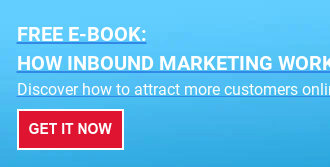Marketing is one of those industries that's packed full of jargon and buzzwords. Not least of which are the phrases marketers use to describe what we do. There's digital marketing, online marketing, content marketing, inbound marketing... but what's the difference?

To start off, I would say that digital marketing and online marketing are more or less the same thing. Digital Marketing is any marketing activity that uses computers. Online Marketing is any marketing activity that uses the internet. Therefore there aren't many digital activities that aren't also online.
What Is Digital Marketing?
In my opinion, it's a very broad term which encompasses a huge number of marketing tactics. It includes activities like simple advertising, which, although it started as a traditional, offline activity, now exists everywhere online including Google, Facebook, the digital editions of newspapers and magazines, YouTube and mobile apps. It also includes slightly more recent phenomena like email marketing, video marketing, content marketing, social media marketing, blogging and, of course, websites. And there are a few less obvious methods such as apps and chatbots.
So, we can think of Digital Marketing as a big basket of tactics that businesses can pick from depending on their objectives and budgets. However, the problem with marketing tactics remains the same as it has always been - it's easy to choose the newest, shiniest idea, but much harder to choose the right idea for your long-term business goals.

Inbound Marketing To The Rescue
Enter Inbound Marketing. It can be described as the strategic side of online marketing. It takes a selection of tools out of the digital marketing basket and arranges them in a specific order for a specific reason. Rather than being an all-encompassing description, it's a methodology, a way of using the tactics to fulfil a business objective.
Let's think about a typical inbound marketing campaign:
It starts like any other marketing campaign... with a plan. You need to understand your objectives so that you know what to focus on, and, of course, you need to understand the people you are going to be speaking to, your target audience.
By developing buyer personas and painting a picture of how they move through the process of deciding to buy from your company, you can arrange all the digital marketing tactics from that basket into a structure that matches the way your potential customers make their choices.
For example, if you are an architect, it might look like this:
- Grab the attention of new people who are thinking of extending their homes. You would do this through SEO, social media and maybe also AdWords or social media advertising.
- Get them to visit your website by providing useful, relevant content (a blog post or guide) on what you need to know about extending your home.
- Engage them further and encourage them to provide permission to contact them by offering a How-to Guide to house extensions in return for an email address.
- Follow up on the engagement with the offer of a further piece of useful information, such as a step-by-step video of what to expect when you extend your house.
- Make contact in order to start an active sales process, through a consultation, free estimate or advisory call.
- Once they turn into a client keep in touch and encourage repeat business or referrals through email and social media tools.
The Proof Of The Pudding
Do you see how that is different from selecting a number of tools and tactics at random? Without a strategy it is all too easy to pick up the phone to a persuasive sales person offering you a banner advert on their exciting new gardening website and say, "yes", because you haven't "done any marketing" for a couple of months.
If you had a strategy you'd know whether gardeners were an important audience for you. You'd know if you had any content on your website that was relevant to gardeners. You'd know what you wanted these gardeners to do next so that you could convert them into leads. Or you'd know that gardeners weren't an important audience and you'd be able to say a polite, "no thank you."
Most importantly, if gardeners were important to your business objectives, you'd already have a plan in place to target them, and you'd already have been "doing marketing" to reach and nurture them, and you'd know how well it was working and whether or not this new website was a valuable addition to your plan.
Which Agency Should You Choose?
To sum up, all Inbound Marketing agencies are, by default, digital marketing agencies as they use digital tools to run inbound campaigns. However, not all digital marketing agencies are also inbound marketing agencies. Ask about strategy, planning and lead generation to find out if they have the skills to maximise the benefits to your business.



